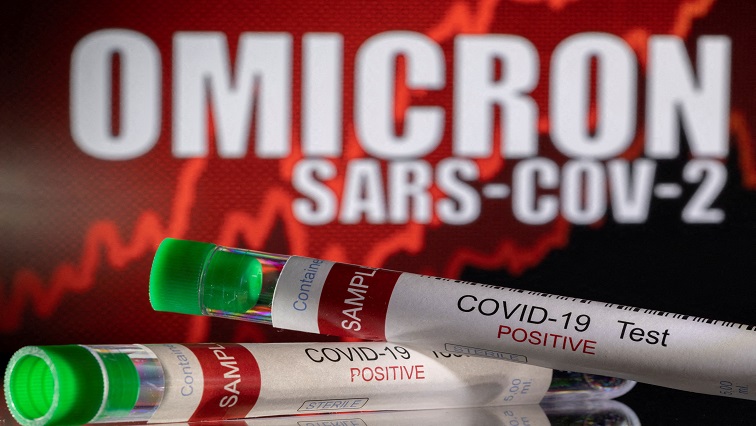World Health Organisation (WHO) Director Dr Tedros Ghebreyesus says we should all aim to end COVID-19 in 2022. He says this year gave us hope as we had a number of vaccines to fight against the pandemic.
The WHO briefed the media in Geneva virtually and it also warned that the COVID-19 blanket booster programme will worsen vaccine inequity.
The last media briefing by the World Health Organisation comes as the world has experienced a surge in the cases of COVID-19 due to Omicron variant.
WHO boss says all hands should be on deck to end COVID-19 in 2022. “As we look back in 2021, it gave us hope. Science delivered hope in the form of vaccines which saved many lives. On the other hand, no doubt inequitable sharing cost so many lives.”
The world health body is extremely concerned about Omicron as scientists are still looking for concrete results on its severity.
WHO’s Dr Maria Van Kerhove says, “We definitely see the increase of Omicron. It’s been detected in 106 countries to date. There’s a combination of factors leading to this transmission.”
But it cautions we mustn’t lose hope and vaccines remain the powerful tools we have at our disposal.
WHO’s Chief Scientist Dr Soumya Swaminathan says, “A lot of data is coming on Omicron and it’s important to have a holistic view of the vaccine programme.”
Meanwhile, the WHO has reiterated that travel bans may delay infections but they will certainly not stop transmission. They called on countries not to embark on knee-jerk reactions in fighting the global pandemic.
WHO’s Dr Tedros says we should all aim to end COVID-19 in 2022:
SA study offers Omicron hope
South African data offered a glimmer of hope on Wednesday about the severity of the Omicron coronavirus variant, but World Health Organisation officials cautioned that it was too soon to draw firm conclusions as the strain spread across the globe.
With the second Christmas of the pandemic just days away, countries imposed new restrictions on their citizens while they worried about the damage the variant might inflict on their economies.
Plans for Christmas parties and celebrations were wiped out from London to New Delhi amid the uncertainty.
Omicron was first detected last month in southern Africa and Hong Kong. Preliminary data indicated it was more resistant to vaccines developed before it emerged.
But a study South Africa’s National Institute for Communicable Diseases (NICD) suggested that those infected with Omicron were much less likely to end up in hospital than those with the Delta strain.
COVID-19 cases also appear to have peaked in South Africa’s Gauteng province, the region where Omicron first emerged, it said.
The study, which has not been peer-reviewed, compared South African Omicron data from October and November with data about Delta between April and November.
“In South Africa, this is the epidemiology: Omicron is behaving in a way that is less severe,” the NICD’s Professor Cheryl Cohen said.
“Compellingly, together our data really suggest a positive story of a reduced severity of Omicron compared to other variants.”
However, the WHO technical lead on COVID-19, Maria van Kerkhove, said the UN agency did not have enough data to draw firm conclusions about the severity of the Omicron variant.
The data was still “messy” as countries reported its arrival and spread, she told a briefing in Geneva.
“We have not seen this variant circulate long enough in populations around the world, certainly in vulnerable populations. We have been asking countries to be cautious, and to really think, especially as these holidays are coming up.”
The WHO’s European head told Reuters in Brussels that three to four weeks was needed to determine Omicron’s severity.
Hans Kluge said that Omicron, already dominant in Britain, Denmark and Portugal, was likely to be the main coronavirus strain in Europe in a few weeks.
“There is no doubt that Europe is once again the epicentre of the global pandemic. Yes, I’m very concerned, but there is no reason for panic. The good news is…, we know what to do.”
WHO briefs media on progress in COVID-19 vaccination: 22 December 2021
VACCINATE
Meanwhile, governments raced to contain the variant’s rapid spread, urging citizens to get vaccinated as Omicron upended reopening plans that many had hoped would herald the end of the pandemic.
Germany, Scotland, Ireland, the Netherlands and South Korea have reimposed partial or full lockdowns or other social distancing measures in recent days.
Germany’s health minister said he had not ruled out a full lockdown.
Italy was preparing new measures and might make vaccinations obligatory for more categories of workers, Prime Minister Mario Draghi said.
Austria is to order a 10 p.m. close in the hospitality sector and classified Britain, Denmark, the Netherlands and Norway as risk areas, meaning arrivals from there must go into quarantine if they have not had a booster shot.
Belgium, the Czech Republic and Spain were also considering new curbs. The Indian capital of New Delhi banned Christmas and other celebrations ahead of the New Year.
The Chinese city of Xian – home to the Terracotta Warriors – told its 13 million residents to stay at home as it struggles to contain rising COVID-19 cases under Beijing’s zero-tolerance policy. -Additional reporting by Reuters


